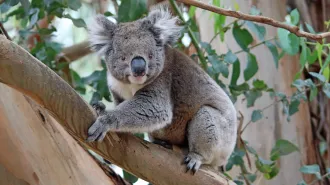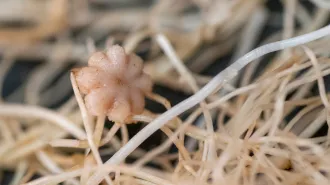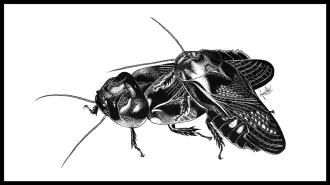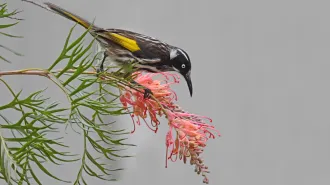Though climate change has knocked little birds called great tits out of sync with their chicks’ food supply, the birds are maintaining their population numbers, a new study finds. But the way the tits cope may give them only a temporary reprieve.
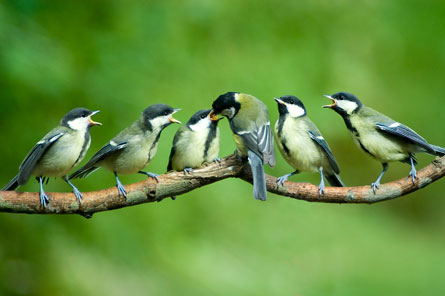
“It’s buying them time,” says ecologist Tom Reed of the Netherlands Institute of Ecology in Wageningen.
Warmer springs mean that the peak food demands for Parus major chicks come later than the annual burst of local caterpillars. With less food, fewer young survive to leave their nests, Reed reports. However, the smaller resulting cohort of fledglings faces less competition for winter nuts and other resources. So a greater percentage of the youngsters survive through the winter than previously did, and — so far — this survival uptick has kept the study population from shrinking, Reed and an international team report in the April 26 Science.
These “quite acrobatic little birds” are close relatives of North America’s chickadees, Reed says. Decades ago, researchers set out nest boxes in a Dutch national park, and great tits readily moved in, forming a manageable study population.
Intense monitoring allowed Marcel Visser, also at Wageningen and a coauthor of the study, to realize that the nest timing was going wrong. In 1998, he and a colleague reported that the park’s great tits wereone of the first documented examples of birds getting ecologically out of sync with food because of climate change.
Springtime in northern Europe had become unusually warm by the 1980s, and the trend has continued. The birds don’t migrate so they and the insects are exposed to the same weather. But caterpillars are more sensitive to a change in temperature, Reed says. The caterpillars and birds also take their temperature cues at different times in the spring. The differences mean the caterpillars tend to peak a lot earlier. The birds, unfortunately, haven’t kept pace.
With 37 years of data in the new study, researchers also detected that this mismatch is changing evolutionary pressures on the great tits. The breeding pairs that nest a bit earlier now produce more surviving offspring, so the population is getting a little nudge toward the new timing regimen. It remains to be seen whether the climate will change too fast for this slow adaptation to protect the population.
This kind of climate-induced mismatch between animals and their food supply has become a common worry among biologists. Pied flycatchers, small birds that spend winters in Africa, don’t return to Europe soon enough to catch the spring insect bonanza. In West Greenland,, migratory caribou miss the best grazing. And in Norway, puffins are declining as the spring bloom of plankton often misses the main hatching of herring and shrinks the -food supply later needed to feed puffin chicks.
Still unclear is whether any out-of-sync species besides the great tits would get some relief from the benefits of lessened competition among youngsters. “We should be very cautious about suggesting that this is a widespread response to [food-supply] mismatch,” says ecologist Sarah Burthe from the Centre for Ecology and Hydrology in Edinburgh. Many studies, she says, already show that animals raise fewer total offspring in years with significant mismatches.
